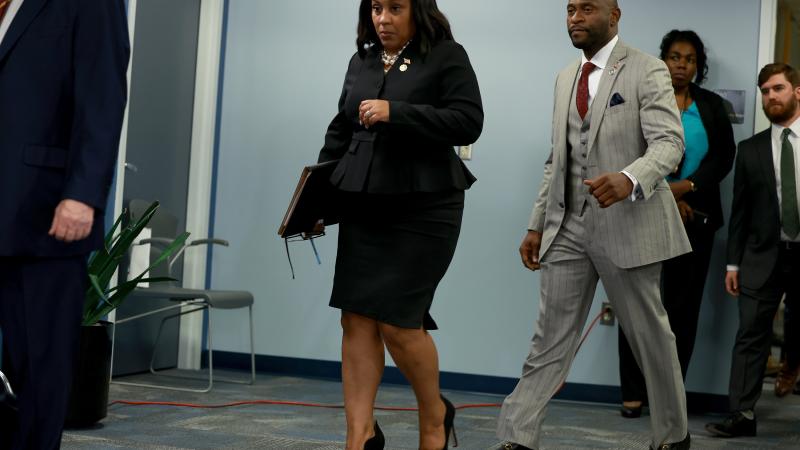Reforms after Massey shooting could include better police employment screening
Grayson was fired shortly after the shooting and charged with murder.
There is agreement from all sides about the need for reforms for how police are hired in Illinois, but what reforms there need to be is still unclear.
Gov. J.B. Pritzker continued taking questions Thursday about the aftermath of the police-involved shooting death of Sonya Massey last month in Springfield by then-Sangamon County sheriff’s deputy Sean Grayson, and what policies could change to prevent such events in the future.
“There are ideas that are floating around. I don’t think there’s a bill that anybody has put together. It’s hard to tell exactly what can be done especially when there isn’t transparency in the sheriff’s department,” Pritzker said after cutting the ribbon on the 2024 Illinois State Fair in Springfield.
Pritzker has called for Sangamon County Sheriff Jack Campbell to resign. Campbell has refused, saying he’s working to find ways to reform the system to keep bad actors out of policing.
“The one responsible is in jail and will never work in law enforcement again,” Campbell said in a statement Wednesday. “Calls for my resignation are nothing more than political maneuvering during a tragic event and only hurt the good citizens of Sangamon County.”
Grayson was fired shortly after the shooting and charged with murder.
Campbell said his office used a hiring process they believed was consistent with statewide standards.
“If these standards are deficient, we would advocate a change at all necessary levels,” Campbell said.
Illinois Sheriffs’ Association Executive Director Jim Kaitschuk said there could be reforms, but what those reforms look like isn’t quite clear.
“But we’re going to go through a process to try to examine that thoroughly and make sure that we can make changes that are helpful to the profession and bring more good people back in,” Kaitschuk told The Center Square Thursday.
Someone wanting to get into law enforcement goes through a rigorous series of steps that includes no felonies, written and physical tests, psychological exams and lie detectors, Kaitschuk said. Once a merit commission grants eligibility, and the applicant completes class and field training, they can then be hired.
Pritzker said the former deputy, Sean Grayson, had an abysmal employment history.
“These are questions that a sheriff who’s hiring somebody ought to be asking,” Pritzker said. “I don’t know whether he asked those questions. It seems to me he could not have. If he had he would have learned a lot.”
As to possible blindspots for employment histories, that’s something Kaitschuk said should be examined.
“Maybe there’s a process where there has to be a release of information provided by that individual, the applicant, that says ‘hey give all my information out’ and then the agency that has the information, make sure they make the request that’s required,” he said. “I think there’s some things that could be looked at there.”
It’s expected the issue could be discussed further by state legislators heading into fall veto session after the November election.
“With that said, I hate for this situation to be politicized, and that’s what I feel like some of this is occurring now and I think that, again, let’s focus on how we can make things better for everybody,” Kaitschuk said.














